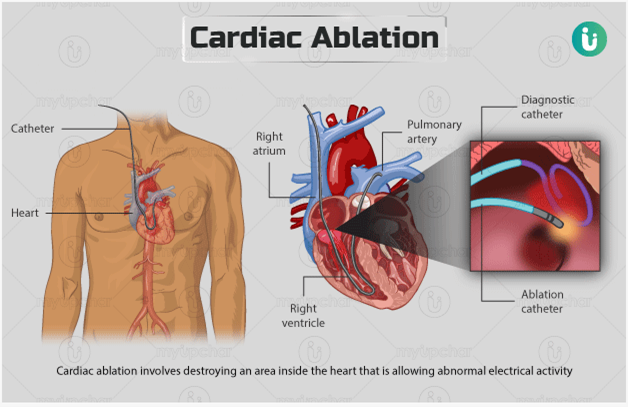The nurse and unlicensed assistive personnel (UAP) are caring for four clients on a telemetry unit. Which nursing task would be best for the nurse to delegate to the UAP?
Assist the client to take the beta-blocker.
Transport the client to the intensive care unit via a stretcher
Provide the client going home discharge-teaching instructions
Help position the client who is having a portable x-ray done
The Correct Answer is D
Helping to position a client for a portable x-ray generally involves physically assisting the client in moving into the appropriate position or adjusting their body as needed. This task can be safely delegated to the UAP as long as they have received proper training on how to safely assist with positioning and have a clear understanding of the specific instructions provided by the radiology department.
Assisting the client to take the beta-blocker involves administering medication, which falls within the scope of nursing practice and requires the nurse's expertise in medication administration and monitoring the client's response.
Transporting the client to the intensive care unit via a stretcher involves moving the client to another unit and may require additional monitoring and coordination of care during the transfer. This task is best performed by the nurse, who can assess the client's stability, ensure appropriate documentation, and communicate effectively with the receiving unit.
Providing discharge-teaching instructions to the client going home requires the nurse to provide information about medications, wound care, follow-up appointments, and other important instructions. This task involves comprehensive education and assessment of the client's understanding, and is best performed by the nurse to ensure accurate and complete information is provided.
Nursing Test Bank
Naxlex Comprehensive Predictor Exams
Related Questions
Correct Answer is D
Explanation
The procedure uses electrical energy to destroy areas of the conduction system: Catheter ablation is a minimally invasive procedure performed to treat abnormal heart rhythms, such as atrial flutter. During the procedure, a catheter is inserted into the heartand used to deliver electrical energy to specific areas of the heart tissue. This energy is used to destroy or ablate the abnormal conduction pathways that are causing the atrial flutter.
Let's go through the other options and explain why they are not accurate:
The procedure stimulates the growth of new pathways between the atria: Catheter ablation does not stimulate the growth of new pathways. Instead, it aims to eliminate or modify existing abnormal pathways in the heart to restore normal electrical conduction.
The procedure uses cold therapy to stop the formation of the flutter waves: Catheter ablation does not use cold therapy. It primarily utilizes radiofrequency energy or other sources of heat to ablate the targeted areas of the heart tissue.
The procedure prevents or minimizes the patient's risk for sudden cardiac death: While catheter ablation can be an effective treatment for certain arrhythmias, including atrial flutter, it is not primarily performed to prevent or minimize the risk of sudden cardiac death. Its main purpose is to restore normal heart rhythm and alleviate symptoms associated with the arrhythmia.

Correct Answer is C
Explanation
The most important finding to report to the health care provider would be the serum potassium level of 3.0 mEq. This is an extremely low potassium level (normal range is typically 3.5-5.0 mEq/L), which can indicate a potentially life-threatening condition called hypokalemia. Furosemide (Lasix) is a diuretic medication that can cause potassium loss in the urine, and a low potassium level can lead to serious cardiac and muscle abnormalities. It is crucial to report this finding promptly to the health care provider for appropriate intervention and monitoring.
Blood glucose level of 175 mg/dL: While an elevated blood glucose level can be a concern, especially for individuals with diabetes, it is not the most critical finding in this situation. The client's primary concern is hypertension, and the administration of IV furosemide is aimed at managing blood pressure. The elevated blood glucose level should still be addressed and monitored, but it is not as urgent as the low potassium level.
Orthostatic systolic BP decrease of 12 mm Hg: Orthostatic hypotension refers to a significant decrease in blood pressure upon standing up. While it is important to assess and manage orthostatic changes, a decrease of 12 mm Hg in systolic blood pressure alone may not be considered clinically significant. It could be a normal response for some individuals. However, if the client experiences symptoms such as dizziness or lightheadedness upon standing, further evaluation may be necessary. Nonetheless, it is not as urgent as the low potassium level.
Current blood pressure reading of 166/94 mm Hg: While this blood pressure reading indicates hypertension, it is not the most critical finding to report in this situation. The nurse is preparing to administer furosemide (Lasix), which is a medication commonly used to treat hypertension. It is expected that the blood pressure will be high before administering the medication. The goal is to monitor the blood pressure after the administration to assess the effectiveness of the medication.
Whether you are a student looking to ace your exams or a practicing nurse seeking to enhance your expertise , our nursing education contents will empower you with the confidence and competence to make a difference in the lives of patients and become a respected leader in the healthcare field.
Visit Naxlex, invest in your future and unlock endless possibilities with our unparalleled nursing education contents today
Report Wrong Answer on the Current Question
Do you disagree with the answer? If yes, what is your expected answer? Explain.
Kindly be descriptive with the issue you are facing.
